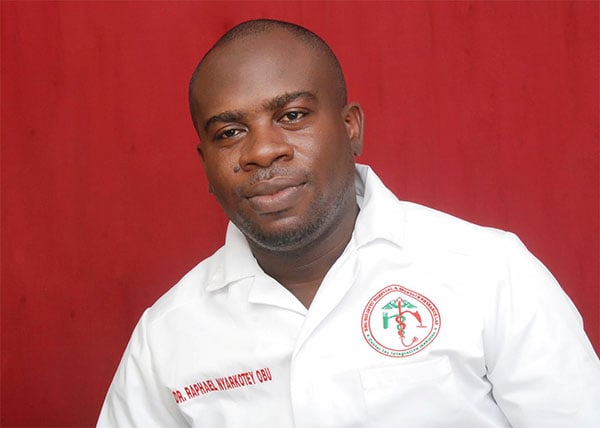Professor Raphael Nyarkotey Obu, a distinguished naturopathic healthcare expert, is championing the cause of hibiscus, locally known as sobolo, as a potent natural remedy for hypertension management. He argues that sobolo, rich in antioxidants and anthocyanins, offers a compelling alternative to conventional pharmaceutical treatments. These compounds contribute to vasodilation, thereby improving circulation and reducing both systolic and diastolic blood pressure. Professor Obu’s advocacy extends beyond the health benefits, encompassing the significant economic potential of hibiscus cultivation in Ghana. He envisions a flourishing hibiscus industry that empowers local farmers, generates revenue, and reduces the nation’s reliance on imported goods. This vision, grounded in the integration of health, agriculture, and economic development, positions sobolo as a catalyst for national prosperity.
Professor Obu’s commitment to promoting sobolo manifests in concrete initiatives. He has founded a “Herbal Mall” dedicated to developing evidence-based hibiscus products catering to various health concerns, including cardiovascular health, women’s health, prostate health, and urinary tract infections. His goal is to elevate sobolo from a simple beverage to a versatile natural ingredient utilized in a range of health solutions. This strategic approach aims to solidify sobolo’s position as a key player in the natural medicine and wellness landscape. He envisions sobolo not merely as a drink but as a cornerstone of a broader approach to healthcare, emphasizing the synergy between natural remedies and holistic well-being.
Beyond its medicinal applications, Professor Obu is advocating for the adoption of sobolo wine as a substitute for imported communion wine in Ghanaian churches. This proposal addresses the escalating costs faced by churches while simultaneously supporting local farmers and businesses. By promoting the use of locally sourced sobolo wine, he seeks to create a sustainable and economically viable solution that resonates with religious practices and strengthens community ties. This initiative intertwines economic pragmatism with cultural relevance, positioning sobolo as a symbol of self-reliance and community empowerment.
Professor Obu, serving as the General Secretary of the Ghana Alternative Medical Practitioner Association (GAMPA), views sobolo as an emblem of the potential of natural remedies to contribute to public health and national development. His concurrent role as a member of the research advocacy team for the World Naturopathic Federation (WNF) in Canada further underscores his commitment to advancing the field of naturopathy. His contributions to the regulatory frameworks of naturopathy across Africa, including drafting Ghana’s first national occupational standard, demonstrate his dedication to establishing professional standards and promoting best practices. His pioneering work positions him as a leading voice in the integration of traditional and alternative medicine into mainstream healthcare systems.
Professor Obu’s accomplishments extend to legal and educational spheres. He holds the distinction of being the first African naturopath called to the Bar in the Gambia, showcasing his multifaceted expertise and commitment to legal advocacy within the healthcare sector. Furthermore, he established the Nyarkotey University College of Holistic Medicine and Technology, the first naturopathic medical school in Ghana, solidifying his legacy as a trailblazer in naturopathic education. This institution serves as a testament to his vision of fostering a new generation of healthcare professionals trained in holistic and natural approaches to medicine.
Professor Obu’s advocacy for reforms within Ghana’s Traditional Medicine community reflects his dedication to restoring public trust in traditional and alternative medicine. His efforts aim to bridge the gap between traditional practices and modern healthcare systems, promoting a more integrated and comprehensive approach to well-being. His work challenges conventional notions of healthcare, emphasizing the importance of incorporating traditional knowledge and natural remedies into evidence-based practice. Through his multifaceted contributions, Professor Obu is shaping the future of healthcare in Ghana and beyond, advocating for a more inclusive and holistic approach that embraces the potential of natural remedies like sobolo.


